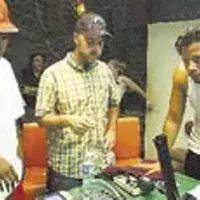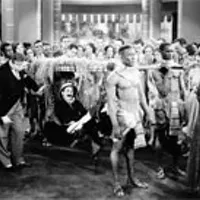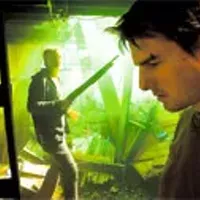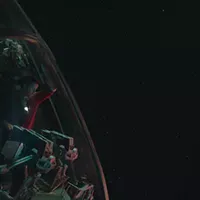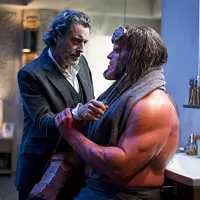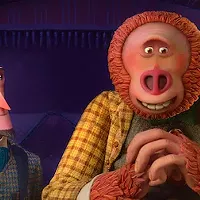

Happily, they don't. Spider-Man 2 isn't as accomplished -- or even as enjoyable -- a movie as its predecessor, but it's a more ambitious one, and some ill-advised decisions don't come close to overshadowing the overall sense that we're watching a film franchise grow up before our eyes.
Set two years after the first film, the story rejoins Peter Parker (Tobey Maguire) in a particularly difficult time. Because of his obligations to serve the city under his Spider-Man alter ego, Peter has little time to devote to more ordinary demands. His tardiness costs him his job as a pizza delivery boy; his lack of sleep causes him to start failing his college courses; and, most importantly, his life in the danger zone forces him to distance himself from Mary Jane Watson (Kirsten Dunst), the woman he loves. Mary Jane has gone on to become a model of national renown and an actress of, uh, no renown (the theater showing her play looks pretty dingy), but neither she nor their mutual friend Harry Osborn (James Franco) see much of Peter anymore. His crisis of conscience -- how can he lead a proper life as Peter Parker when his role as Spider-Man seems to ruin everything? -- becomes so consuming that it even affects his abilities as the superhero-about-town (one minute he has powers, the next minute he doesn't).
Peter's growing desire to give up the whole web-swinging shtick arrives at an inopportune moment. Dr. Otto Octavius (Alfred Molina), a scientist with a genuine wish to serve mankind, has just made a breakthrough in the area of fusion, yet after his experiment goes awry (as it inevitably must), he transforms into Doctor Octopus, a madman who's controlled by the four imposing metallic arms permanently grafted onto his body. And Parker's problems don't end there: His friend Harry is still vowing revenge against Spider-Man, convinced that it was the masked do-gooder who killed his father (see Spider-Man 1 for a refresher course).
Sam Raimi was brought back as director, yet even he can't always corral the disparate elements that pull this picture in all directions. Then again, when your writing staff includes a Pulitzer Prize winner (Michael Chabon), a two-time Oscar winner (Alvin Sargent), and the team responsible for such drivel as Lethal Weapon 4 and Shanghai Noon (Alfred Gough and Miles Millar), there's bound to be some schizophrenia in the finished product. Paradoxically, S-M 2 seems to be both more talky and more action-packed than its predecessor, yet because the dialogue is more somber and the fights more cartoonish than before, the dichotomy becomes pronounced and, as a result, the movie often has trouble settling into a consistent tone. That proves to be far more distracting on the visceral end: All too often, Maguire seems to be playing Superman rather than Spider-Man, and the exaggerated nature of both his swinging abilities (a couple more feet and he could probably touch an orbiting satellite) and his strength (his attempts to stop a runaway train are simply absurd) all too often takes us out of the story and reminds us that, yes, we're merely watching a movie.
But somehow, the human element pulls us back into the proceedings. It's obvious to all that the reason Spider-Man first made a mark in print -- and has endured for decades -- is due to the unique angle that Stan Lee and Steve Ditko introduced from the start. This wasn't some larger-than-life hero but a common kid with problems we could all relate to; that he was also a superhero almost seemed incidental. The two Spider-Man films have done a terrific job in exploring that dimension, with most of the credit falling squarely on the shoulders of Maguire. He's wonderfully appealing in the role, and if Dunst isn't quite the Mary Jane of the comic book, then the charitable among us can view the character as a respectful hybrid of the comic Parker's two great loves: the feisty Mary Jane and the more demure Gwen Stacey.
There are other pluses, some of them holdovers from the first film: Danny Elfman's vibrant score, J.K. Simmons' cigar-chomping editor J. Jonah Jameson, clever tidbits for the insiders, and the prevailing post-9/11 sense of a New York City united against wrongdoers (as in the first film, citizens loudly declare their support for Spidey). There's also Molina's fine work as Doc Ock, who proves to be as memorable a villain as Willem Dafoe's Green Goblin.
"With great power comes great responsibility." That was the central message spoken in Spider-Man, and it's now being used as the tagline for this picture. The importance of this line isn't lost on Peter Parker, and it isn't lost on the filmmakers, either: They were entrusted to provide sparkling summer entertainment, and they deliver.
